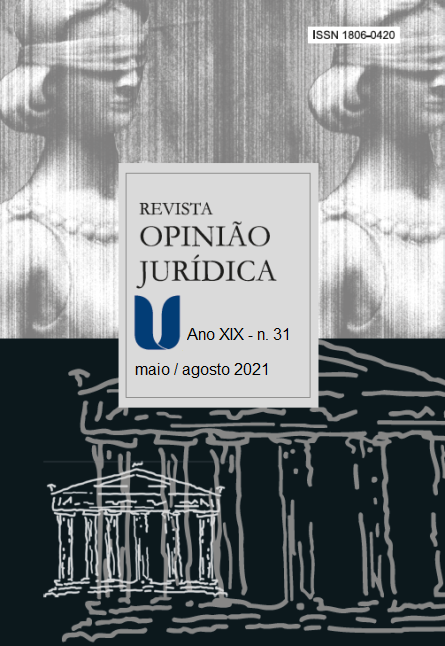LEGAL EDUCATION IN THE 21ST CENTURY AND THE ARTIFICIAL INTELLIGENCE
DOI:
https://doi.org/10.12662/2447-6641oj.v19i31.p1-32.2021Keywords:
Legal education, Digitization, Artificial intelligenceAbstract
Objectives: We sought to study the main reflexes of the digital economy that influence legal education, and some of the operational suggestions that accompany criticisms of that process. To this end, some of the main suggestions made by experts in law and education to transform legal education in the face of the technological ubiquity scenario were observed. In a second moment, the transformations that higher education has been undergoing with the introduction of AI in the market and in universities were specifically analyzed. Finally, both the reflexes of AI in legal education and suggestions related to transformations that legal education must undergo were studied.
Methodology: The hypothetical-deductive procedure method was used, with a qualitative and technical approach of bibliographic-documentary research, in this exploratory and interdisciplinary research.
Results: It was identified that legal education will have to move away from a retrospective epistemological stance, and evolve towards a prospective and projective stance, incorporating knowledge from technological areas and quantitative methodologies, without neglecting the exercise of traditional normative skills, communicative and narrative values that are highly evaluated by law professionals, thus emphasizing the need to foster student creativity. It is also concluded that higher education courses should incorporate coding in their curricula, in parallel with encouraging students' creativity and their communicative skills — however, a regulation should be developed in parallel, which must take into account the ethical risks of the use of AI in teaching. Finally, it is clear that the legal professions are not yet under a very pressing possibility of substitution by AI, but universities must make students aware that there are specific tasks in the legal professions that may be replaced by AI tools in order to advise them to focus on tasks that cannot be replaced by machines.
Published
How to Cite
Issue
Section
License
CESSION OF COPYRIGHTS
The submission of articles to analysis for publication on Opinião Jurídica implies the author(s) transfers copyrights to Centro Universitário Christus – UNICHRISTUS for reproduction, publicizing, distribution, printing and publication, according to the Publication Norm 414R, Opin. Jur., Fortaleza, year 12, n. 16, p.1-414, Jan./Dec. 2014, costs to be bore by UNICHRISTUS, in whatever format or means that may or shall exist, in accordance to articles 49 and following of Federal Law 9.610/98.
1. In ceding copyrights, the author(s) agrees to do so in exclusivity, free of charge and for the totality of the work.
2. UNICHRISTUS may make the work, in its entirety or in parts, available for scholarly purposes, without altering its contents, except for small corrections that are deemed necessary.
3. The cession of copyrights is valid in all countries and for versions of the material in its original language or translated into a foreign language.
RESPONSIBILITY FOR THE CONTENT
By submitting an article, the author(s) declare to have sole responsibility for the content of the piece and is(are), therefore, responsible for any judicial or extrajudicial measures referring to it.
1. In case of joint authorship, all authors are considered collectively responsible, except when proved otherwise.


















